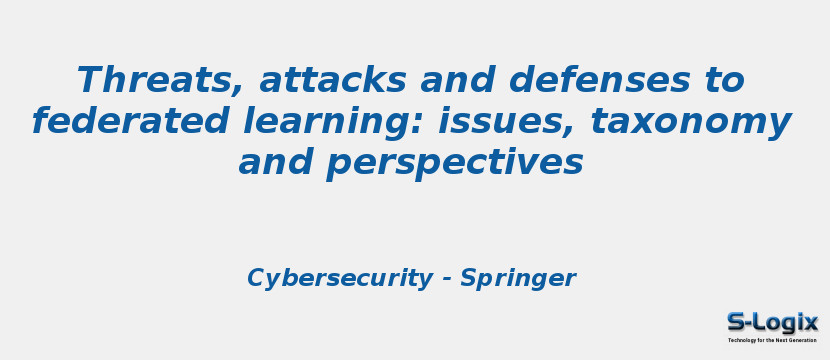Research Area: CyberSecurity
Empirical attacks on Federated Learning (FL) systems indicate that FL is fraught with numerous attack surfaces throughout the FL execution. These attacks can not only cause models to fail in specific tasks, but also infer private information. While previous surveys have identified the risks, listed the attack methods available in the literature or provided a basic taxonomy to classify them, they mainly focused on the risks in the training phase of FL. In this work, we survey the threats, attacks and defenses to FL throughout the whole process of FL in three phases, including Data and Behavior Auditing Phase, Training Phase and Predicting Phase. We further provide a comprehensive analysis of these threats, attacks and defenses, and summarize their issues and taxonomy. Our work considers security and privacy of FL based on the viewpoint of the execution process of FL. We highlight that establishing a trusted FL requires adequate measures to mitigate security and privacy threats at each phase. Finally, we discuss the limitations of current attacks and defense approaches and provide an outlook on promising future research directions in FL.
Keywords:
Federated learning
Security and privacy threats
Multi-phases
Inference attacks
Poisoning attacks
Evasion attacks
Defenses
Trusted
Author(s) Name: Pengrui Liu, Xiangrui Xu & Wei Wang
Journal name: Cybersecurity
Conferrence name:
Publisher name: Springer
DOI: 10.1186/s42400-021-00105-6
Volume Information: volume 5, Article number: 4 (2022)
